|
My favorite things to eat are sweet treats. Chocolate any-sort-of-way is my snack of choice. I love it! During this quarantined time at home, I’ve found myself baking and eating all kinds of delicious foods and sweet treats. The end result (besides having a belly full of tasty cookies and cakes) has been enjoying these treats together with my family like a little “ritual.” Every night, there is a delicious baked-good in the house that my husband and I look forward to enjoying together. I’ve found comfort in this time together, and it’s something I want to hang onto even after quarantine. My husband and I sit back, unwind with conversation or some TV, and enjoy a yummy treat together on the couch. One might even call it our quarantine tradition! Baking over these past few weeks has brought another level of joy for me apart from devouring the finished product. Baking in the kitchen brings me joy during this time: I decide what delicious treat to make, assemble all the supplies, read each step closely and carefully, get each ingredient measured just right, and wait patiently for it all to bake. I’m not a very meticulous person when it comes to cooking and baking, but baking with recipes has been a newfound joy that fills my heart. The patron saint of bakers and pastry chefs is St. Honore, whose feast day was just on May 16th. He was a 6th century bishop in France who is normally depicted with a baker’s paddle and wheat; he is celebrated in Paris with a three-day feast and a festival of bread. There is also a special cake in his honor called the “Gateau St. Honore” made of cream puffs, caramelized sugar, and pastry creams. Maybe I’ll honor his feast day (a little late) with a cream puff masterpiece of my own! Baking brings me joy, and perhaps it can bring you joy during this time as well. Baking with kids, although slightly messier, can be a great source of joy that builds lasting memories. Baking with a spouse or significant other can also bring you closer together. Here is a list of 9 ideas related to baking that will not only fill your bellies, but also your hearts—adding a little more sweetness to your life during this pandemic and time spent at home:
St. Honore, pray for us!
0 Comments
4/7/2020 Cooking During COVID-19: Ten Tips for Nourishing Your Body and Soul | COVID-19 ResourceRead Now“As chefs, we know that good food provides not only nourishment, but also comfort, especially in times of crisis.” -Chef Jose Andres When Hurricane Maria hit Puerto Rico in September of 2017, there was a great need for food- not just for the necessary nourishment, but also because “good food provides. . .comfort, especially in times of crisis.” Chef Andres and his team at World Central Kitchen provided 3.7 million fresh, never pre-packaged, locally sourced meals for the people of Puerto Rico as they recovered from Hurricane Maria. While our current situation in the midst of the COVID-19 pandemic likely doesn’t call us to produce millions of meals, Chef Andres’ thesis remains true—food brings comfort, especially in times of crisis. Chefs like Jose Andres and Andrew Zimmern were a large inspiration for me to pursue a degree in Culinary Arts. They helped me to see that food is not only tasty, a way to earn a living, and a creative outlet, but that it is a way to build community, to learn about culture, and to cultivate human bonds around our tables. Despite changing the scope of my career, food still plays a big part in my life. When I cook for friends and family, we are able to be together at table, just like Jesus invites us to. I see questions every day on social media from friends asking how best to cook this or bake that, for tips and tricks, so I figured I would provide some of my tips. So here are ten tips for cooking during the pandemic, quarantine, and crisis.
3/31/2020 Altered States: Living With Adult Children During Coronavirus | COVID-19 ResourceRead NowAs parents in our early sixties, living in household with our 25, 23 and 19 year old adult children is proving to be an interesting challenge during this pandemic. We have successfully transitioned from training six little ones to launching three and sharing our household with the remaining three. Each of us lives what I consider ‘parallel’ lives under one roof. We all go to our respective jobs, enjoy our own friend groups, and participate in our specific extra-curricular activities, along with sharing family time together. It is a state of life that has forged a certain routine that is pleasantly habitable. Slam dunk us all into the middle of an unprecedented disease that turns our world upside down overnight – and our happy coexistence becomes challenged. We are forced to adapt to new schedules and new restrictions that we all must willingly cooperate with. Moving from government recommendations to ‘imposed sanctions’ is met with varying reactions from the five in our household. Those of us who are easily contented engaging in solitary activities are not so affected. We find new books to read, projects in the house or the yard, a nature series to watch, extra time to participate in the Chaplet of Divine Mercy, the Rosary and the Mass on tv. Those of us who are energized by hanging out with our peer group, attending public events, or going out to restaurants and pubs find these restrictions close to being imprisoned. Our foremost responsibility as parents during this uncertain time is to be very intentional in communicating with our young adults about the ‘rules’ and the ‘whys’ and the ‘wherefores’ of cooperating in a Godly manner to all of this. We speak daily of the importance of adhering to social distancing and the extra measures of hygiene and disinfecting while allowing our children to express their frustrations, share new information, and ultimately come to agreement to remain steadfast in cooperation when it is difficult. I can’t stress enough the necessity of speaking daily in a positive manner so that we all help keep each other accountable. Getting independent, self-sufficient young adults to operate from the same page is most definitely a tight rope act. I’m accompanying them in a way I never have before. It requires lots of talking and more listening. It necessitates creative ways of encouraging. Each family dynamic is different, but in my male-dominated household, what I have found brings us together is food. My plan these days has been to cook, cook, and cook some more! Preparing meals that satisfy and draw us together opens us to sharing our thoughts and feelings and encouraging one another with what we find most difficult. In our discussions, our adult children share their creative ways they have found to connect with friends and to cope with the temporary suspension of activities they regularly participated in. Our pace of life has slowed considerably. My job is on temporary shutdown, but everyone else still goes to their jobs on altered shifts with no work meetings. When they arrive home, I make sure a meal is ready and we talk and pray and relax together. They are quicker about getting their laundry done, and helping keep common areas of the house disinfected every day. This altered state of living builds character in each of us. We are being called to willingly forego engaging in activities we love for the greater good of our fellow man. Practicing restraint, perseverance, respectfulness, and kindness allows us to grow in holiness that builds up the kingdom of God. This witness promotes community and joy amidst the pain and devastation that is all around us. One activity we have purposely not engaged in during this pandemic is watching or reading the news regularly. We do not watch any major news telecasts and keep apprised of current affairs through government messages and the several medical people in our family. We choose not to obsess on what is happening hour by hour. Instead, we focus on praying, eating well, getting extra sleep, playing games, watching movies, reading books, and pursuing our hobbies in our home space. We essentially have created our own little bubble to weather this storm together while continuing to participate in our normal duties to the extent that complies with social distancing. We are fortunate to live in a digital age where we can access a degree of connectivity through our various devices and remain a safe distance apart. We were created to be relational. We do not want to live this way solely, but we have the privilege of being connected to others like no other time in history. So far, in our semi lockdown mode – no one has blown up at another, no one has a crazed look about them, no one has run away! We are all present and accounted for under one roof amidst significant life changes. Our home remains a sanctuary of harmony and peace. This altered state of living together is a fruit of ‘grace’ that I believe God is showering on us. He is equipping us as we pray with the virtues of prudence and perseverance. He is covering us with His balm of peace to behave respectfully and kindly to one another. I am mindful of my continued dependence on the Holy Spirit’s grace to guide me as a mother. My prayer is for parents everywhere to walk in faith with your children in the will of God and grow in peace and joy together, whatever the circumstances! Summertime in the United States brings about a lot of great traditions. It brings longer days, shorts, flip-flops, trips to the beach, barbecues, and processions. Processions are large public demonstrations of faith and piety that have been handed down from generation to generation. In Italian American communities, processions are filled with music, color, and, of course, great food—lots and lots of great food. We celebrate in this way because our fathers did before us, and their fathers did before them. This summer I've already been able to attend to two processions and I look forward to a few more. I attended the 107th annual Festa Dei Ceri in Jessup, Pennsylvania, and the 112th feast of St. Anthony Italian Festival in Little Italy Baltimore, Maryland. Each has a long tradition and there are as many differences as there are similarities. At the core, each is a faith that is embedded within its community that is rich and deep.
Festa Dei Ceri, or simply St. Ubaldo’s Day, is a tradition that was brought from Gubbio, Italy by immigrants to Jessup, PA in 1909. Tradition states that in the early 1100s, Ubaldo Baldassini, the Bishop of Gubbio, met with Frederick Barbarossa , the Holy Roman Emperor who was on a military campaign in Italy, and convinced him not to invade and to spare the town from destruction. When the bishop returned with the good news, he was raced through the streets on a platform to reassure the town’s safety. The residence commemorated this event by racing a statue of him, along with statues of St. George and St. Anthony, through the narrow streets of the medieval town. Immigrants brought this tradition with them when they emigrated to Jessup in large numbers in the early 1900s. The Running of the Saints occurred from 1914 to 1952, then from 1976 to 1990, and has consistently been held since 2000 after being revived by local high school students. The day begins with the high school marching band waking the town up and calling them to Mass. After Mass, the statues which are about 30 inches tall are placed in 15 foot wooden structures that are designed to carry the saints and weigh about 400 pounds each. The saint statues are then blessed with holy water, first by the parish pastor or the Bishop of Scranton, then by the team captains and carried through the town by three different teams of men. A relic of St. Ubaldo is also processed and venerated with a significantly larger statue of him throughout the town. In the late afternoon, the three statues are then raced through the town at breakneck speed and over steep terrain. St. Ubaldo always wins, followed by St. George and St. Anthony. After the statues are removed and the platforms are disassembled, they are brought back to the church. The whole weekend is an expression of faith, family, and tradition. A few weeks after that, I was able to attend the St. Anthony Festival in Little Italy in Baltimore, Maryland, which dates back to the Great Baltimore Fire of 1904. While massive fire raged in parts of the city, parishioners gathered at Saint Leo the Great Church in the Little Italy neighborhood of Baltimore. The parishioners prayed to St. Anthony for the protection of their neighborhood. Luckily, the neighborhood was spared. Many attributed this to the intercession of St. Anthony. The parishioners celebrated his feast day with a Mass, procession, and street fair which has continued ever since. Just five years after the beginning of celebration of the feast, the parish became a ministry of the Pallottine Fathers and Brothers. This year, I attended the events along with two Pallottine students in formation. The three of us served Mass and partook in the procession through the streets. Many people came out of their houses and cars to watch us. It was great fanfare with a full band, 4th Degree Knights of Columbus color guard, and a highly decorated statue of St. Anthony. Many people pinned money to strips of cloth tied around the statue as a small offering and prayer to St. Anthony. There was food, music, and an intense bocce ball tournament. Each of the celebrations has a few core elements that all processions have. Processions are about faith and community. Processions help increase our faith by publically displaying various statues and images. It is a form of evangelization in the streets. At the same time, they help build community by calling all those together for a common cause. They reinforce not only our proud heritage and traditions, but also our faith. They promote our faith being celebrated together. Processions are also about the individuals' participation. Attending a procession invites us to feel that we are a part of the community and reinforces our own faith. When I go to procession, for example, I not only enjoy the fanfare, but am also reminded that my faith is connected to those around me. I encourage you to seek out processions and bring your friends and family. Pray, eat, and enjoy each other's company. Processions can be beneficial for every group that continues the practice, not just the Italian American community. Ours just happen to have a bit more tomato sauce and wine than most! As the summer goes on, I look forward to many more processions and I invite you to go out and either attend or partake in a procession. Finding love takes patience and time. I am blessed to be in a relationship with someone I have known for over three years. What started as a friendship has become the kind of relationship I used to dream about. We love to do things like going on trips or just grocery shopping - it’s sharing experiences that means the most to us. Sometimes the littlest things are what we appreciate in each other, like how he knows how I like my coffee at any coffee shop. In return, I know that he likes ice in his glass of milk and likes getting homemade gifts for holidays and birthdays. I’ve tried to build both my friendships and relationship on shared experiences. I love getting to know someone, finding things in common, learning their interests, and spending time with that person. As a Catholic, I’ve tried to surround myself with people who support me and share my beliefs and focus in life. I get to wondering though, what is dating like for other Catholics? Where can we start?
Start at the beginning. In 1 Corinthians 13: 4-7 it says, “Love is patient and kind; love does not envy or boast; it is not arrogant or rude. It does not insist on its own way; it is not irritable or resentful; it does not rejoice at wrongdoing, but rejoices with the truth. Love bears all things, believes all things, hopes all things, endures all things.” This verse is a great place to start. When we appreciate God’s love for us, we can better understand how we deserve to be loved by others. Pope Francis speaks often about love, and when he visited the United States at the World Meeting of Families in Philadelphia, he said, “Love is shown by little things, by attention to small daily signs which make us feel at home. Faith grows when it is lived and shaped by love. That is why our families, our homes, are true domestic churches.” So whether you are in a relationship or not, here is a list of little things to remember as you persevere in your lives.
For all of you who are dating, see if you are incorporating these tips into your relationship. If not, give some of them a try. For those of you reading this who are not in relationships, some of these tips can really help friendships and even relationships down the road. I’ve found that with patience and effort, the little things will amount to bigger memories. In the meantime, it’s the little things that make a relationship resilient. The “I love you!”s and the laughter can be the little things that take the day-to-day interactions and turn them into months and years spending time with someone you care about. For resources on Marriage and Family, please click here. Growing up, my family celebrated Thanksgiving in a traditional way. We would wake up around 8am, watch the “Macy’s Thanksgiving Day Parade,” Broadway musicals, and wait for the rest of the parade to stroll through New York City - from our television. In between the commercials, we would help each other cook and prepare the dinner (which was usually eaten around 1pm or 2pm). As we all grew older and moved away, my siblings and I started making our own memories with those we loved around us. Sometimes, we’ll be surrounded with more than ten people and other times it is just two of us. Sometimes, we have just enough to feed us and other times we have leftover for days. But no matter what, Thanksgiving for me is about “the food before us, the family beside us, and the love between us.”
When reminiscing on Thanksgiving, I also think immediately of the Psalms. To me, the Psalms help provide a great variety of prayers of thanksgiving for what God has done for His people. Sometimes, we forget that God is the one we need to thank. We get caught up in our own lives and think that we only need to be thankful for our gifts and talents. In my 2nd grade classroom, my students take a moment to pray a prayer of thanksgiving at the end of the day. Psalm 28:7 sums up my point: The LORD is my strength and my shield; my heart trusts in him, and I am helped. My heart leaps for joy and I will give thanks to him in song. The more we find moments to thank God for parts of our days and lives, the more we are aware of our own need to do good for others. Being a “person for others,” as promoted by Ignatian spirituality, means helping those around you wherever you are and in everything you do. This is how I try to give back, by being a person for others. People need our help and we can give that through sending prayers, providing food, finding shelter, understanding the plight, giving resources, sending love and so much more! Every year, my dad leaves Thanksgiving dinner to donate turkeys to local families and people who need their own Thanksgiving dinners. Doing unto others as you would want them to do to you is the way to live throughout the year. This way of looking at life encompasses more than a holiday. The following poem by Joanna Fuchs is about how each thing in our life can be a blessing for us - especially at Thanksgiving. Most of All Thanksgiving Day brings to mind the blessings in our lives that usually go unnoticed: a home that surrounds us with comfort and protection; delicious food, for pleasure in both eating and sharing; clothes to snuggle up in, books and good entertainment to expand our minds; and freedom to worship our God. Most of all we are thankful for our family and friends, those treasured people who make our lives extra special. You are part of that cherished group. On Thanksgiving, (and every day) we appreciate you. Happy Thanksgiving! “I was dazzled by a girl I met… I was struck by her beauty, her spirit. I was bowled over for quite a while, she made my head spin.”
Yes, even Pope Francis has experienced falling in love. Much more than just hormones, neurochemicals, emotions, or a pyscho-physical state, love is an ongoing relationship between two people. It is stable, yet grows and is lasting; it offers affection, support, help, and hope (cf. 1 Corinthians 13). If a relationship is not rooted in this love, how can it last? Just as God’s love is total and without end, so must be the love upon which a family is based. In a world where too many settle for an empty version of love and the family unit is under attacksuffering difficulty, it becomes critical that we remember the sacredness of the sacrament of marriage and its purpose as instituted by God. God’s first command to Adam and Eve was to “be fruitful and multiply” (Genesis 1:28). He had not joined our first parents solely for their own benefit or pleasure. Their every act in God’s new creation was to glory and praise Him. Similarly, a man and a woman do not enter into a marriage for their own happiness, but to “love and honor” each other “in good times and in bad… all the days of [their] life.” The couple reflects God’s bearing fruit in their lives, a continuous sign of God’s Power in the world. Everything they do, be it chores, budgeting, cooking, or relaxing, whether separately or together, is a living out of their sacrament— even the smallest acts in the life of a married couple have power hidden within them to make them holy. As married life is the ground of holiness, love is the seed planted by God. Life, together with its agonies and joys, pain and sacrifices, frustrations and tensions, moments of exultation and despair, all act as the rain and sun, thunder and lightning on a young sprout. Of course, disagreements are a normal part of the married lifestyle as well as the human condition. No one is perfect but the faults and weaknesses of each one are compensated for by the other’s virtues. Each possesses what the other lacks. Rather than causing a rift between the two, this results in a loving dependence on each other for spiritual growth and transformation. By forming a habit of looking at each other in a sacramental way— seeing the beauty of God in each other’s souls and seeking to enhance that beauty by building up each other— a married couple reflects God’s blessings and love. The Catechism of the Catholic Church acknowledges this by making no distinction between the roles of the man and woman in the family (see CCC 2221-2231). Rather, both are called to provide the good example and instruction of both academic reason and moral and spiritual formation to their offspring, who in turn contribute to the growth in holiness of the parents (see CCC 2227). Being married to one another, the man and his wife are entrusted with the welfare of the family— woe to those who neglect this responsibility (see 1 Timothy 5:8)! The purpose of raising of a family is not to give glory to oneself but to selflessly assist each other in reaching the Kingdom of God. This is no easy task, as it is a great challenge to devote one’s life to those around him/her! To do this requires great love, the strongest bonding force, and we are reminded of this in a reading commonly used in weddings: Husbands, love your wives, just as Christ also loved the church and gave Himself up for her, so that He might sanctify her, having cleansed her by the washing of water with the word, that He might present to Himself the church in all her glory, having no spot or wrinkle or any such thing; but that she would be holy and blameless. So husbands ought also to love their own wives as their own bodies. He who loves his own wife loves himself; for no one ever hated his own flesh, but nourishes and cherishes it, just as Christ also does the church, because we are members of His body. “For this reason a man shall leave his father and mother and shall be joined to his wife, and the two shall become one flesh.” This mystery is great; but I am speaking with reference to Christ and the church. Nevertheless, each individual among you also is to love his own wife even as himself, and the wife must see to it that she respects her husband. (Ephesians 5:25-33) Finally, Matrimony responds to a specific vocation and must be remembered as sacred. It is a consecration: the man and woman are consecrated in their love. The spouses, then, are entrusted with a mission, so that by starting with the simple ordinary things of life they may make visible and known the love with which Christ loves His Church— that is continuing to give His life for her in fidelity and service. In spite of the difficulties experienced by married couples, the important thing to remember is the nurturing of their bond with God, Who is the foundation of and the cause of joy in the marital bond. Pope Francis, though he ultimately gave himself to the ultimate Spouse, offers these words of advice for preserving “what God has joined, [and] men must not divide”: There are three words that always need to be said, three words that need to be said at home: may I, thank you, and sorry. The three magic words. May I: so as not to be intrusive in the life of the spouses. May I, but how does it seem to you? May I, please allow me. Thank you: to thank one’s spouse; thank you for what you did for me, thank you for this. That beauty of giving thanks! And since we all make mistakes, that other word which is a bit hard to say but which needs to be said: sorry. Please, thank you, and sorry. With these three words, with the prayer of the husband for the wife and vice versa, by always making peace before the day comes to an end, marriage will go forward. The three magic words, prayer and always making peace. Thomas Wong is an undergraduate at The Catholic University of America in Washington, D.C. Today is Thanksgiving Day! Many of us are spending the holiday in the warm comfort of our homes surrounded by our family and friends, eating amazing turkey dinners, and thanking the Lord for all that he has given us! Each of us have our own family traditions that make the holiday our own. Every year for as long as I can remember, my mom pulls out the turkey, and before stuffing it, comes up with a little jingle and makes the turkey dance. Thanksgiving would not be the same without that little tradition, but while these traditions mean so much to us, we must remember that 2000 years ago God sent his only son to become man, suffer and die on a cross, and be raised from the dead and there is nothing for which we can be more thankful!
Today’s psalm is a wonderful reminder of this: “Blessed are they who are called to the wedding feast of the Lamb.” What a perfect psalm for a day of feasting! However, we need to take care to not confuse ourselves about this wedding feast. This is not a feast of turkey and stuffing, or of wine and champagne, but rather a call to participate at the Eucharistic table where we have been blessed to partake in the feast of the Body and Blood of Our Lord Jesus Christ. In Greek, the word “eucharistia” means “thanksgiving.” We are all called to this Eucharistic table, this thanksgiving table. We are all called to the wedding feast. Christ made that possible through his suffering and death on the cross. Christ’s sacrifice did not just allow us to be here today celebrating with our families and praising his name. Rather heopened the heavens to us, invited us into the wedding feast, and taught us how to participate in that feast with him. Is it easy to give ourselves so completely to Christ and the wedding feast? Of course not. Especially at this time of the year when we say “Thank you” one day and are out shopping Black Friday deals the next. This is a season that is a constant struggle between material goods and celebrating the life of Jesus Christ, and yet we persist on. We have to; we have a deep desire for Christ in our lives. During this time of Thanksgiving and as we begin the season of Advent let us take a moment each day to be thankful for Christ’s suffering and death and for his presence in our lives. Thanksgiving gives us the perfect opportunity to begin this dialogue with God! Let us prepare our hearts and minds and give thanks to the Lord! “Never forget that there are only two philosophies to rule your life: the one of the cross, which starts with the fast and ends with the feast. The other of Satan, which starts with the feast and ends with the headache.” ~Archbishop Fulton Sheen Nicholas Shields is a young professional in Washington, DC. “Then God said, ‘Let Us make man in Our image, according to Our likeness; and let them rule over the fish of the sea and over the birds of the sky and over the cattle and over all the earth, and over every creeping thing that creeps on the earth.’ God created man in His own image, in the image of God He created him; male and female He created them. God blessed them; and God said to them, ‘Be fruitful and multiply, and fill the earth, and subdue it; and rule over the fish of the sea and over the birds of the sky and over every living thing that moves on the earth.’ … God saw all that He had made, and behold, it was very good” (Genesis 1:26-28, 31).
From this exaltation we begin our reflection on Father’s Day. Many countries set aside the third Sunday of June in honor of both fathers and fatherhood. It’s usually the time when dads are shown the appreciation of their families for all their love, protection, devotion, guidance, caring, wisdom, teaching, entertainment, discipline (ouch), cooking, support, shuttling around, mentoring, coaching, and/or generosity. It’s a totally fair trade-off but also no secret: fatherhood demands much of a man. Unfortunately, not all are blessed to have a father in their lives, and there are many circumstances which contribute to this. Thankfully, God Himself has provided a model for human fatherhood, someone who He entrusted His own Son to during the crucial formative years of Jesus’ human life: St. Joseph. We look to Saint Joseph as the perfect example of paternity, as he was given the honor of being the guardian of the Holy Family. St. Joseph is not directly quoted in scripture, but what about his actions? Do they speak louder than his words (or lack thereof)? It seems that Joseph’s most frequent biblical deed besides traveling is something men can easily relate to— sleeping before taking action (see Matthew 1:20 and 2:13)... but surely there must be more to being a father than this!? Of course there is! To me, being a true (Christian) father means being a Christ-like man who bears witness to the perfect love of God, and who is a virtuous man to his children, spouse, and to all he encounters. We hear a lot about Mary’s hugely consequential “Yes” (see Luke 1:38) to the Father’s will at the Annunciation and how this is the Blessed Mother’s complete giving of herself to God. In his own soft-spoken way, though, Joseph also gave his own “Yes” and similarly submitted himself to the will of God. Even with the extraordinary circumstances of his betrothed’s pregnancy, Joseph, in the end, places his trust in the divine will and accepts the paternal role God offers him as part of His plan. Like Mary, Joseph selflessly placed whatever desires and plans he had for his future second to what he had now been called to become— Jesus’ guardian and protector. It is this obedience that makes Joseph such a worthy role model for all men. Being righteous (see Matthew 1:19), Joseph knew he did not have all the answers; let alone the experience, for the fatherhood he was being called to. Instead, he stepped aside in faithful acceptance of God’s will. As Saint John Paul II so beautifully put it: What emanates from the figure of Saint Joseph is faith. Joseph of Nazareth is a “just man” because he totally “lives by faith.” He is holy because his faith is truly heroic. Sacred Scripture says little of him. It does not record even one word spoken by Joseph, the carpenter of Nazareth. And yet, even without words, he shows the depth of his faith, his greatness. Saint Joseph is a man of great spirit. He is great in faith, not because he speaks his own words, but above all because he listens to the words of the Living God. He listens in silence. And his heart ceaselessly perseveres in the readiness to accept the Truth contained in the word of the Living God. We see how the word of the Living God penetrates deeply into the soul of that man, that just man. (St. John Paul II, Daily Meditations) This past weekend we celebrated Father’s Day, and whether the father in our lives is a biological one, a father figure, or wears a Roman collar, take the time this week to personally thank both he and God for the impact he’s had on your life. Fatherhood is no easy task and is not for everyone, but the love that flows from this holy calling comes directly from Abba God, “our Father in heaven” (Matthew 6:9-13)! May we be obedient to and cherish these men at all times! Thomas Wong is an undergraduate at The Catholic University of America currently studying abroad in Rome, Italy. |
Details
Archives
July 2024
Categories
All
|
About |
Media |
© COPYRIGHT 2024 | ALL RIGHTS RESERVED

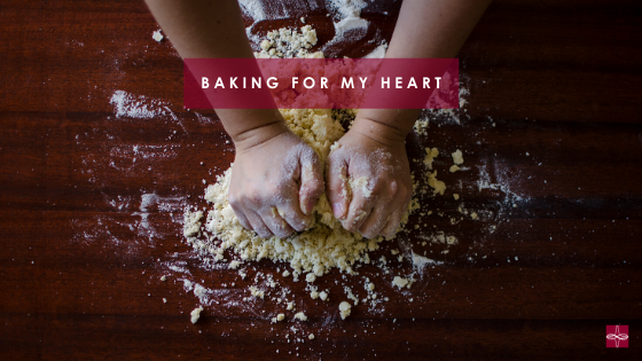

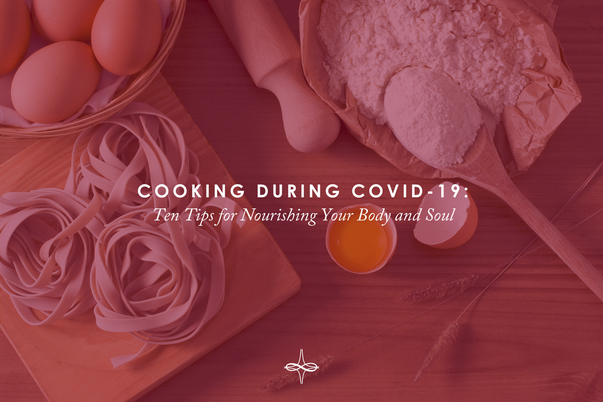
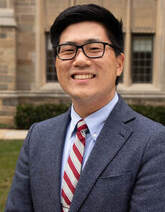


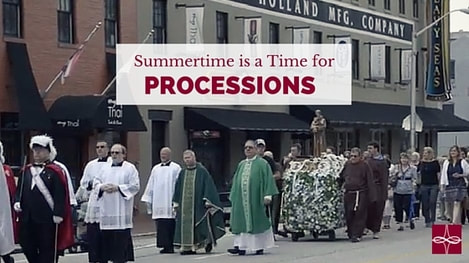






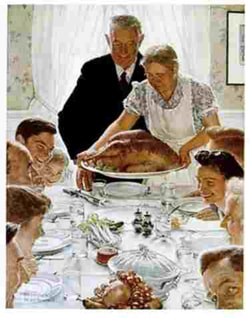
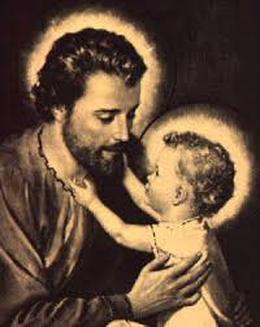
 RSS Feed
RSS Feed